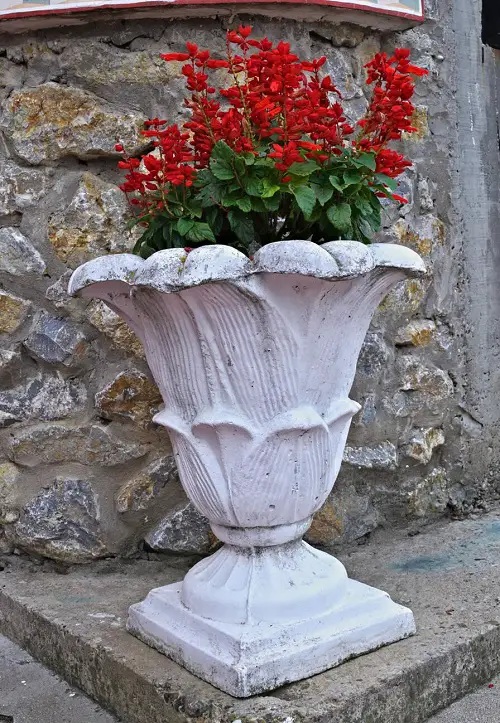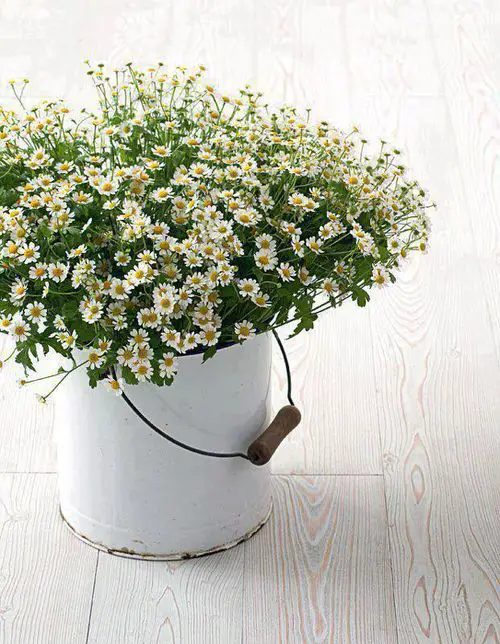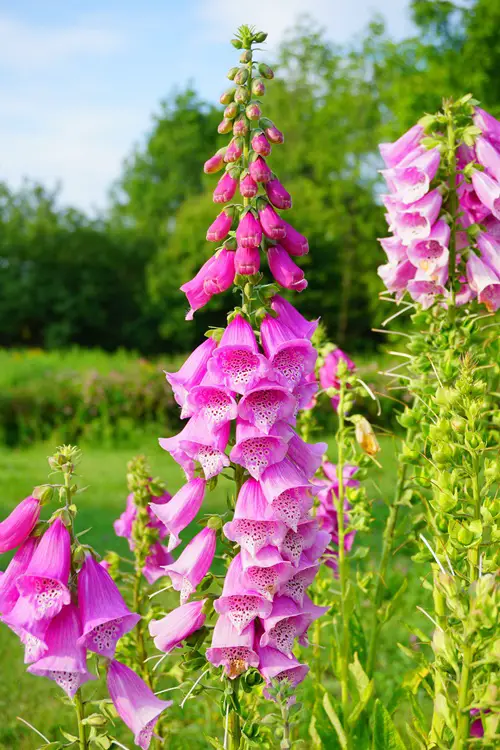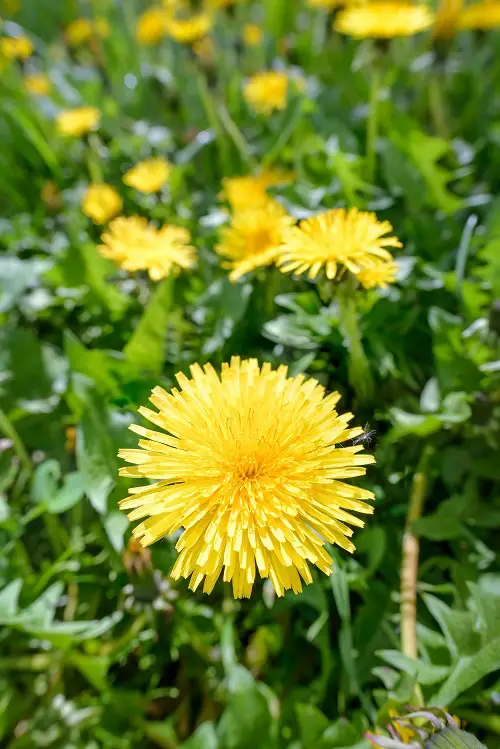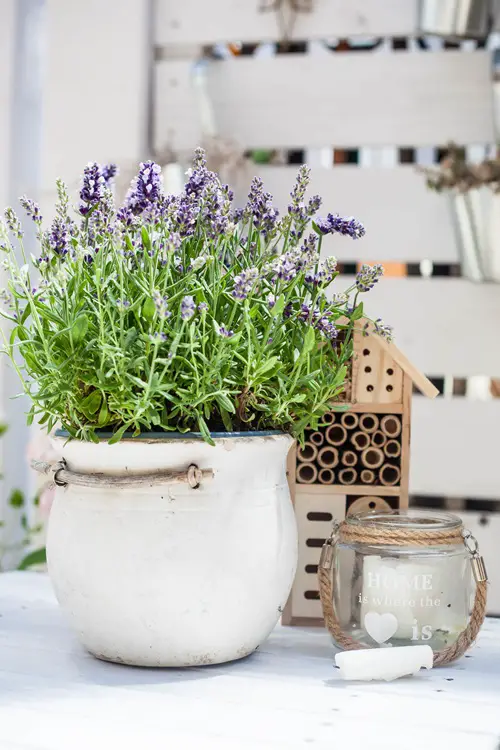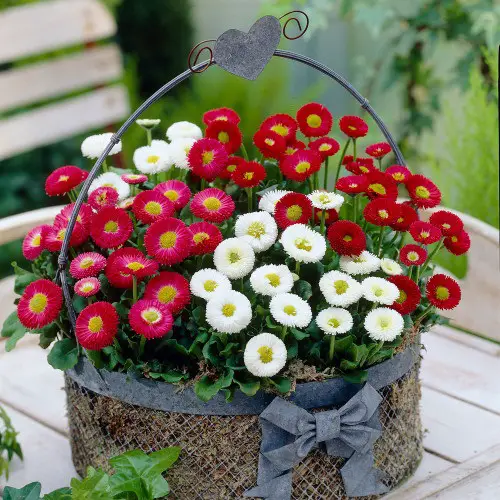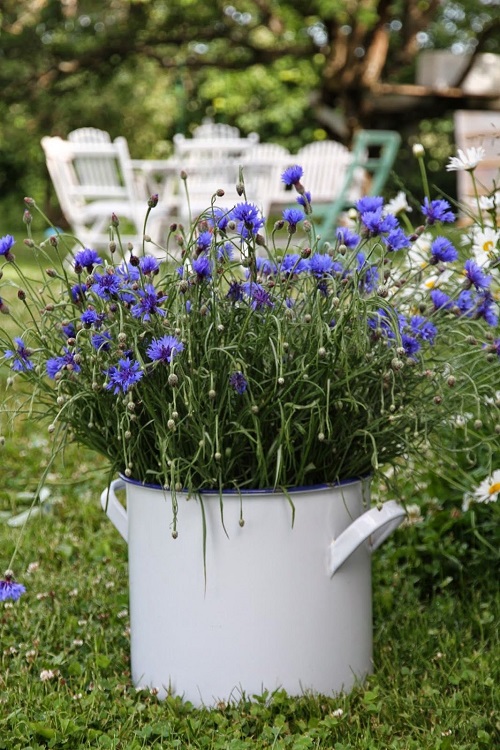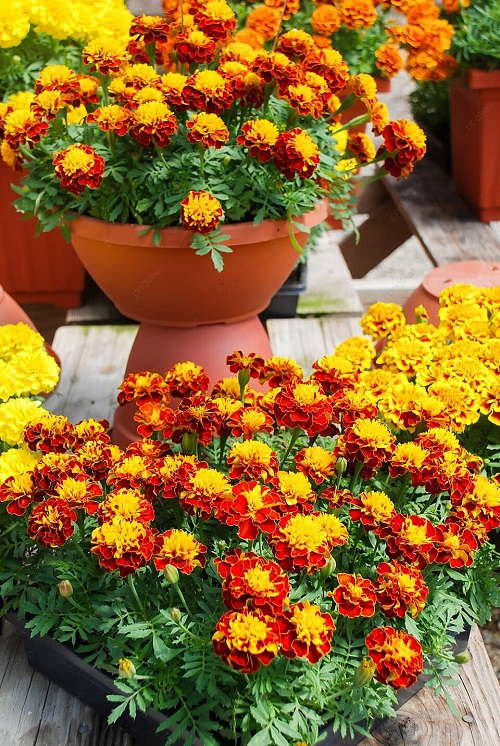These flowers also represent the power of healing, which makes them a perfect gift option for hope and encouragement.
The flowers on this list are believed to possess healing qualities and are good for recovery or rejuvenation – they can be a positive gift offering to friends and family members.
What are Flowers That Mean Healing?
Most of these flowers have medicinal properties. For example, Lavender is a healing flower that calms and soothes you. Coneflowers boost immunity and are used in herbal remedies for colds and flu.
These can also be given as a gift with the intention of healing; it’s a way of wishing good health, recovery, or wellness to the recipient. A symbolic gesture filled with good intentions and positive energy.
Flowers That Mean Healing
1. Jasmine
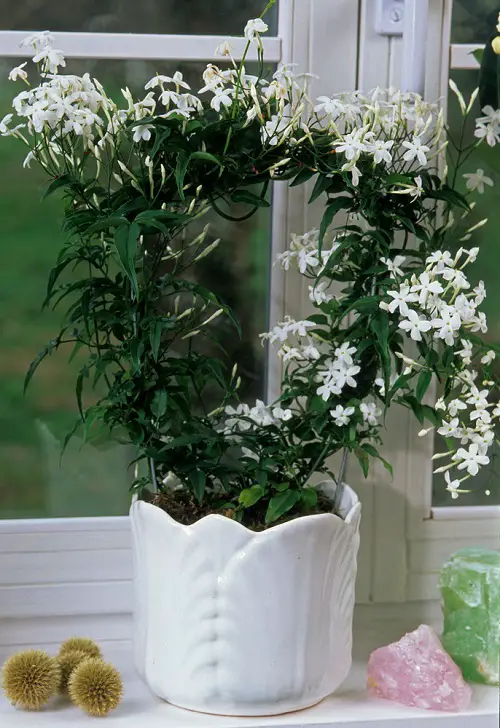
Botanical Name: Jasminum officinale
Jasmine flowers are prized as they aid in relaxation and also reduce anxiety. They have healing properties and can ease muscle aches and help you sleep better.
It’s been used to treat liver diseases (hepatitis) and liver pain due to cirrhosis, and it can also reduce pain in the abdomen caused due to diarrhea (dysentery).
2. Sage
Botanical Name: Salvia officinalis
Sage has been a part of traditional medicine for the relief of pain for ages and also protects the body against oxidative stress. These flowers have antioxidant and anti-inflammatory benefits too.
The aroma of sage reduces anxiety, and burning it in homes can bring positivity to the space and the people living there.
3. Chamomile
Botanical Name: Matricaria chamomilla
Chamomile flowers promote relaxation and calmness. They are also great for fighting gastrointestinal issues like diarrhea, vomiting, and indigestion.
You can use chamomile as an essential oil and even consume it as a herbal tea.
Fun Fact: Did you know? Chamomile can be helpful to treat hay fever, muscle spasms, menstrual disorders, insomnia, and inflammation. It’s also great for treating ulcers, wounds, gastrointestinal disorders, rheumatic pain, and hemorrhoids.
4. Foxglove
Botanical Name: Digitalis purpurea
Foxglove plants are interesting healing flowers because they’re extremely poisonous but are a part of modern medicine.
Chemicals from the plant are used to make digoxin – a medicine for heart problems that slows down its rate so the heart can pump blood around the body more easily.
Note: You should not consume medicines containing foxglove without the recommendation of a medical professional. All parts of the foxglove plant are poisonous.
5. Dandelion
Botanical Name: Taraxacum
Dandelion flowers might look delicate, but they’re a powerhouse of health benefits. Dandelions are rich in antioxidants and nutrients.
These flowers support liver health, aid digestion, and help regulate blood sugar levels.
6. Lavender
Botanical Name: Lavandula angustifolia
Lavenders mean healing because they relieve stress, possess anti-inflammatory properties, and heal both your mind and body.
Many studies have shown that lavender essential oil is beneficial in treating many ailments like insomnia, alopecia (hair loss), anxiety, stress, and postoperative pain.
7. Calendula
Botanical Name: Calendula officinalis
Calendulas aren’t just pretty flowers – they have antiseptic and anti-inflammatory properties, which makes them great in treating wounds, burns, and skin irritations, promoting healing and renewal.
The flower is also good to improve skin hydration and firmness.
8. Passion Flower
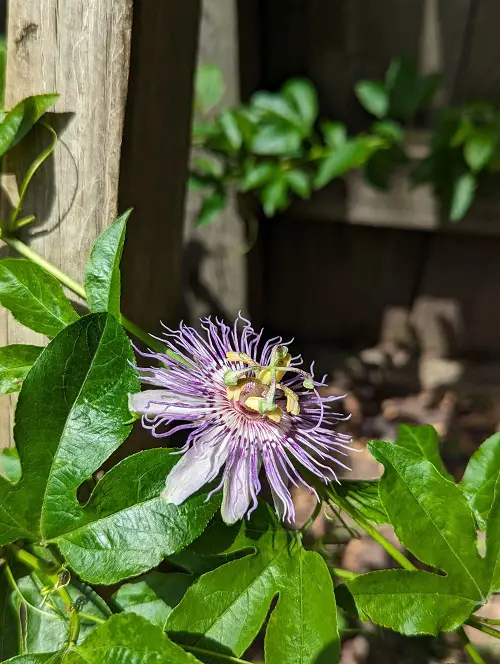
Botanical Name: Passiflora incarnata
These beautiful flowers are popular in traditional medicine for anxiety and insomnia because they can help you sleep better.
Passionflower is a dietary supplement as well and can be used to treat heart rhythm problems, menopause, and hyperactivity disorders.
9. Vervain
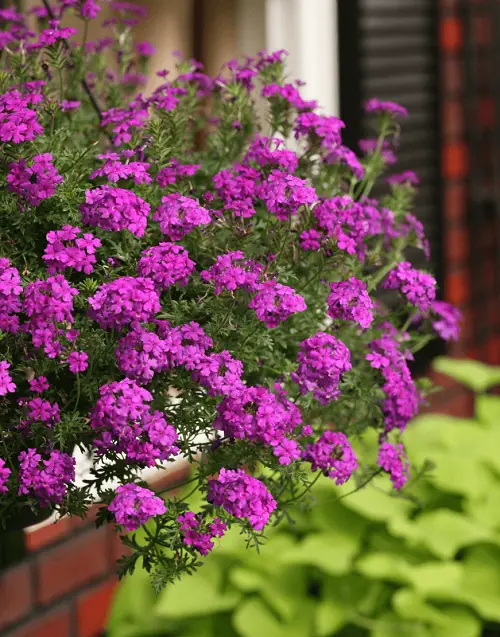
Botanical Name: Verbena officinalis
Vervain flowers have many healing properties – the most important of which is to help in treating migraines. The flowers are also rich in antioxidants and protect the body against free radicals.
They can also help in treating arthritis, gout, and muscle pain.
10. Daisy
Botanical Name: Bellis perennis
Daisy might be a symbol of purity, but it also has antibacterial properties, which help it heal wounds and respiratory ailments.
You can use the paste of the flowers for skin diseases, wounds, sore throats, and common colds. They can also help take care of digestive issues.
Check out these Flowers That Represent Strength
11. Peony
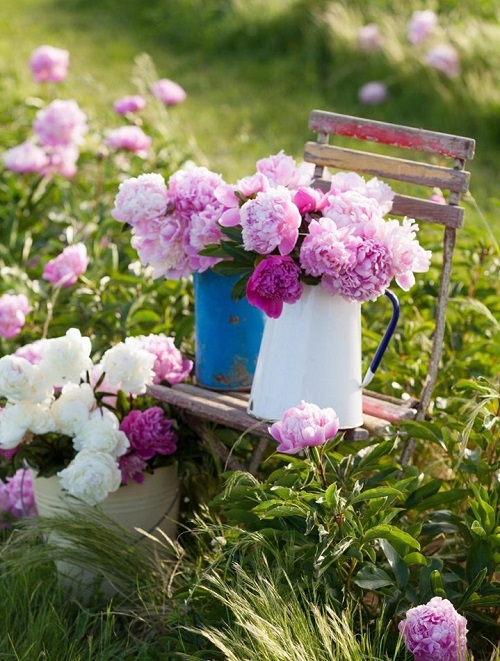
Botanical Name: Paeonia lactiflora
Peony flowers block chemicals that cause cramps, especially during periods. There are many creams available in the market that have peony extracts as they help crack and damage skin on the soles.
People also believe that peonies can prevent blood clotting but the evidence to support this is limited.
12. Rose
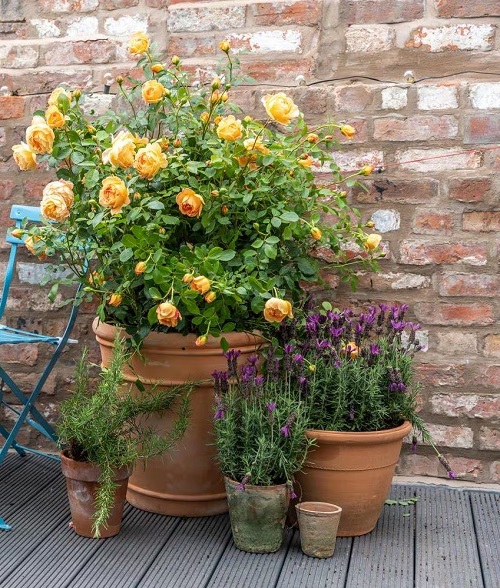
Botanical Name: Rosa
Rose flowers represent strength and healing, and rightly so. These flowers are rich in vitamins and antioxidants, making them perfect for heart health, boosting mood, and rejuvenating the skin.
Rose oil can relieve nervous tension and is also used in vapor therapy for allergies and headaches.
13. Evening Primrose
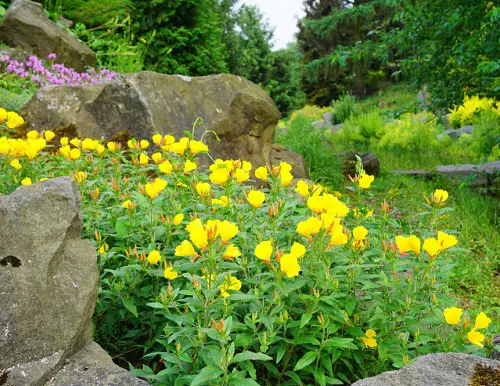
Botanical Name: Oenothera biennis
These yellow flowers that you look at every day as you walk past the meadow pack a strong medicinal punch. These flowers are rich in gamma-linolenic acid, which is used to get rid of acne and dermatitis and relieve PMS.
14. Chrysanthemum
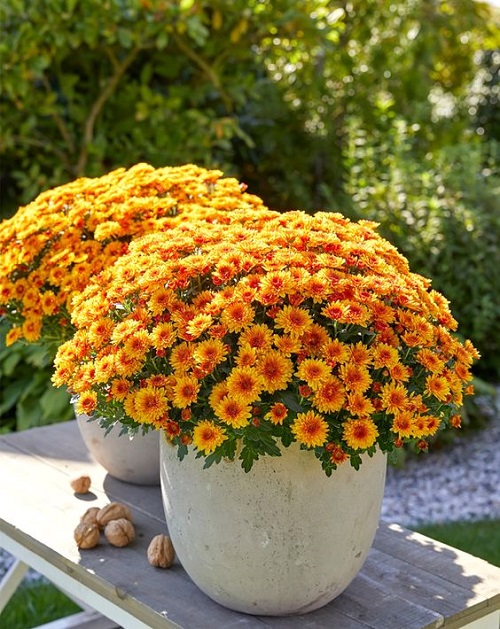
Botanical Name: Chrysanthemum morifolium
Chrysanthemums come in many beautiful colors and have been used in medicine for hundreds of years. The Chinese use Chrysanthemum flowers to make tea and also believe the roots of the flowers can cure headaches.
You can also have Chrysanthemum tea to boost your immune system.
15. Coneflower
Botanical Name: Echinacea purpurea
You might see coneflowers in the ingredients of supplements as it has been used by Native Americans for over 400 years to treat infections and illness. Coneflowers help reduce the symptoms of cold and flu and also boost the immune system.
16. Cornflower
Botanical Name: Centaurea cyanus
Cornflowers are great for mental and physical detoxification as they can be used to make cornflower tea – which can treat fever, constipation, and chest congestion.
These flowers mean healing as they’re also present in tonics as a stimulant for the liver and gallbladder.
17. Sunflower
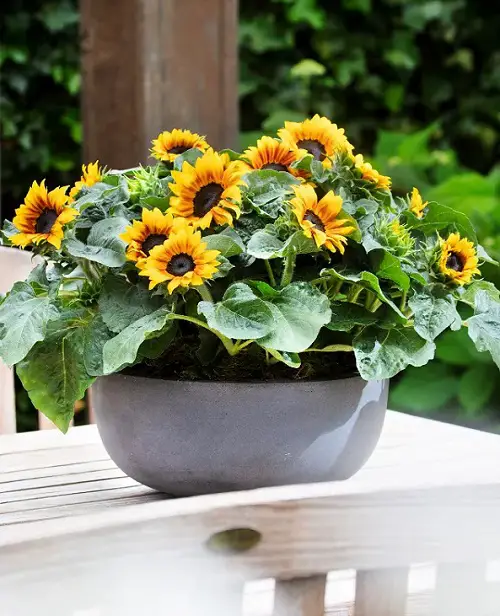
Botanical Name: Helianthus annuus
These beautiful yellow and black beauties attract healing energies and keep away negativity. Sunflowers are used for pulmonary infections as well.
You can also eat sunflower seeds to keep the body fats in check as they lower bad cholesterol (LDL) and raise good cholesterol (HDL) in the body. They also help in blood sugar control.
18. Yarrow
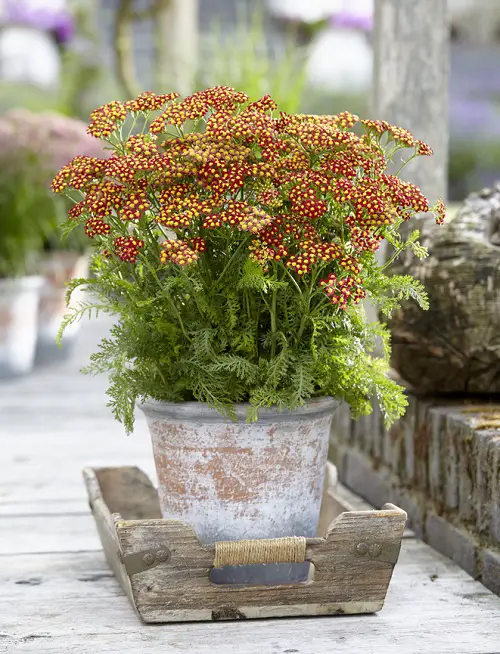
Botanical Name: Achillea millefolium
Yarrow is used in Native American culture as it has astringent qualities making it an effective wound healer. The flower is also known for protection and clears out the negative energies in your home. You can also use it for its anti-inflammatory properties.
19. Magnolia
Botanical Name: Magnolia grandiflora
Magnolia bark and flower buds are used in a ton of medicines to treat weight loss, digestion, constipation, and to reduce stress and depression.
20. Lilies
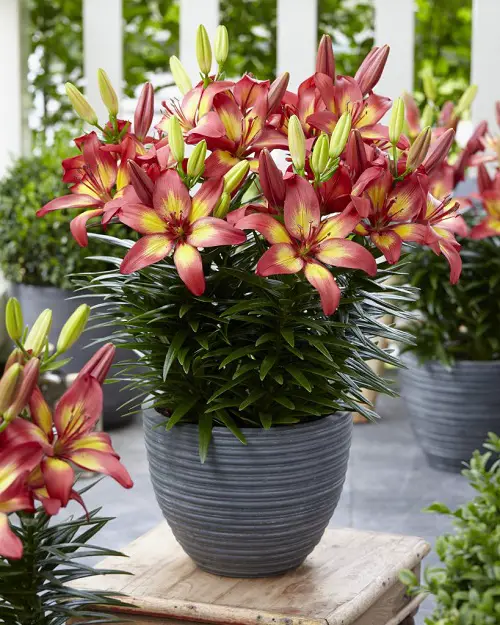
Botanical Name: Lilium
Lilies are known for their beauty but also hide many health benefits. Many Lily species, for example – the White Lily, are used in folk medicine.
The extracts of lilies are used to make Lily flower essential oil that promotes emotional well-being through aromatherapy. They also reduce insomnia and aid skin health.
Note: Don’t pick any lily and start consuming it, as there are many lily species that are highly toxic if ingested.
21. Marigold
Botanical Name: Tagetes
Marigolds are associated with joy and good luck. These flowers are used in Ayurveda and Unani medicine because their leaves have anti-inflammatory, antipyretic, and antiepileptic effects.
22. Geranium
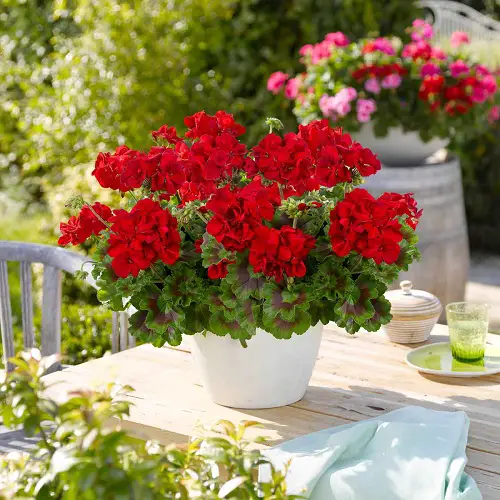
Botanical Name: Geranium
Geranium flowers offer protection and ward off negative energies – what makes them flowers that mean healing are their therapeutic properties.
These flowers are used in extracts to treat skin anomalies and reduce chronic inflammation.
23. Poppy
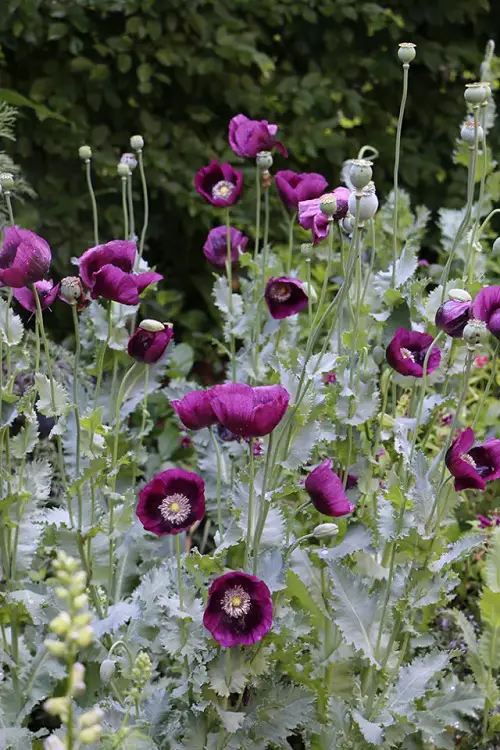
Botanical Name: Papaver somniferum L.
Poppy flowers bring comfort in times of pain. The extracts of this plant are used to relax muscles and in treating abdominal cramps and diarrhea.


